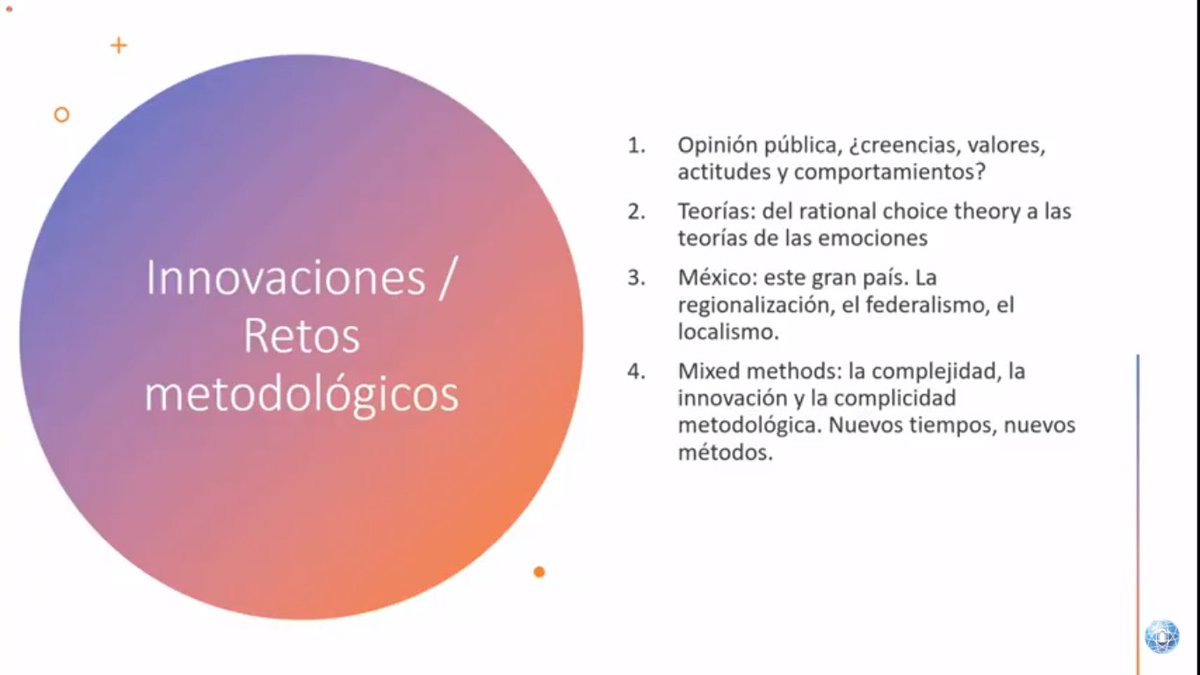
Evento: "Encuestas y Elecciones: Metodologías, Muestras y Aplicaciones"
YouTube:
Facebook Live: facebook.com/CiopMX/videos/…
Participa Rodrigo @salazar_elena Coordinador del #LabdeM (Laboratorio de Métodos) de la @FlacsoMx
YouTube:
Facebook Live: facebook.com/CiopMX/videos/…
Participa Rodrigo @salazar_elena Coordinador del #LabdeM (Laboratorio de Métodos) de la @FlacsoMx
https://twitter.com/CiopMx/status/1361148717156433920
Inicia @IsaCordu su presentación. Isabel sugiere que en el estudio de la opinión pública, utilizar métodos mixtos puede ser interesante. 

.@ricartur59 presenta una diversidad de estrategias de muestreo y estratificación y los distintos métodos que se podrían utilizar para comprender la opinión pública.
No toda la población se puede analizar.
No toda la población se puede analizar.

Explica Rodrigo @salazar_elena el uso político de los datos y de la inferencia estadística por diferentes actores.
A partir de lo que observamos en la muestra, hacemos inferencias sobre el comportamiento de la población en general. No cualquier muestra es buena, debemos notar.
A partir de lo que observamos en la muestra, hacemos inferencias sobre el comportamiento de la población en general. No cualquier muestra es buena, debemos notar.

"Necesitamos transmitir la incertidumbre inherente como la información que efectivamente obtenemos de ellos"
-- Rodrigo @salazar_elena
-- Rodrigo @salazar_elena

Termina el primer ciclo de intervenciones Fernanda Somuano @FernandaSomuan1 del @CEIColmex
Explica Fernanda la diferencia entre el perfil del votante "promedio", y el perfil de los votantes de cada partido. Es importante diferenciarlos. Y qué preguntas son adecuadas, cuáles no?
Explica Fernanda la diferencia entre el perfil del votante "promedio", y el perfil de los votantes de cada partido. Es importante diferenciarlos. Y qué preguntas son adecuadas, cuáles no?

• • •
Missing some Tweet in this thread? You can try to
force a refresh





